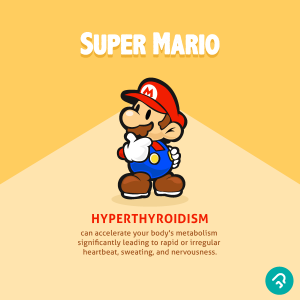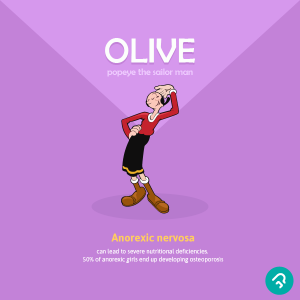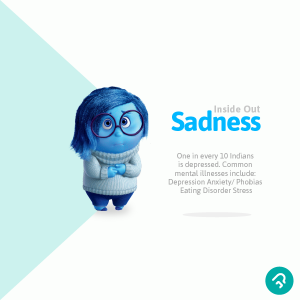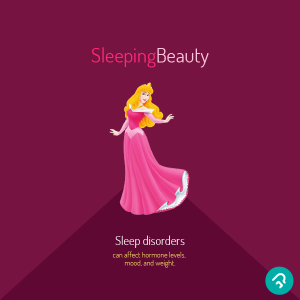As surviving with sanity becomes more and more challenging in the recent world, people are opting for the easy way out to stay occupied indoors. Spending lots of time watching tv or using phones is causing irreversible negative effects. The pandemic has pushed us into confinement and more than ever we feel the need and dependency on virtual life. Screen time is the total time spent per day in viewing screens such as mobile phones, TV, computer, tablet or any hand-held or visual device.
It is time to ask the question, ”what is the ideal amount of screen time?” Let us find answers to what should an average screen time per day be for children and adults.
1. Obesity
When you are looking at a screen, you usually remain in a particular position for an extended period of time. This means you have restricted movement and that can increase your risk of obesity. It can further cause chronic issues like heart disease. Being in front of a screen for a long time will likely lead to mindless snacking and usually make adults and children, obese.
2. Insomnia
Prolonged screen time evidently has a negative effect on your sleep. This applies to both children and adults. The blue light emitted by the screens can significantly lower the melatonin levels, a hormone that regulates when you sleep and wake up and this will disrupt your entire sleep cycle.
3. Eye problems
One of the first and noticeable effects of too much screen time is impaired vision. The blue light can prove to be dangerous and eye strain often leads to dry eyes, blurry vision, irritation and burning sensations.
4. Back and neck issues
If you continue to look at your phone, tablet or a tv screen for a really long time, it will put a lot of strain on your neck muscles and your spine. You will experience pain after sitting in a slumped posture for too long. This is common and likely results in frequent headaches and backaches. To avoid these, reducing screen time is a must.
5. Impact on behaviour and mental wellbeing
Excessive screen time can be addictive and has a negative impact on the mental health and behaviour of a person.
Recommended screen time Under 2 years old: Zero screen time, except for video chatting with family or friends.
Dr. M.G. Kartheeka, MBBS, MD
2-5 years old: No more than one hour per day co-viewing with a parent or sibling.
5-17 years old: Generally no more than two hours per day, except for homework. more than 17 years max 3- 4 hrs per day
Excess screen time may slow language development in children and make it hard for your child to sleep at night. Limiting screen time is very essential.
Dr. Ashish Bajaj, M.B.B.S., M.D.
As we talk about the negatives of screen time, you must remember that it is not entirely a negative element. If you maintain the ideal screen time for yourself and train your children accordingly, you can derive several benefits from digital media. It helps you learn and stay connected with friends and relatives. It is okay to include screen time as a part of your daily activities but do not make it the only activity and increase dependency on it.
Disclaimer: The information provided here is for educational/awareness purposes only and is not intended to be a substitute for medical treatment by a healthcare professional and should not be relied upon to diagnose or treat any medical condition. The reader should consult a registered medical practitioner to determine the appropriateness of the information and before consuming any medication. PharmEasy does not provide any guarantee or warranty (express or implied) regarding the accuracy, adequacy, completeness, legality, reliability or usefulness of the information; and disclaims any liability arising thereof.
Links and product recommendations in the information provided here are advertisements of third-party products available on the website. PharmEasy does not make any representation on the accuracy or suitability of such products/services. Advertisements do not influence the editorial decisions or content. The information in this blog is subject to change without notice. The authors and administrators reserve the right to modify, add, or remove content without notification. It is your responsibility to review this disclaimer regularly for any changes.
You may have heard that working too hard can cause you to burnout. A worrying trend has been emerging lately. More and more people are reporting Work from Home (WFH) burnout.
Doesn’t sound possible, right? What could beat the comfort of working from the familiar and cosy setting of your home? Yet it is spreading fast.
Read on to know more about WFH burnout.
The world has never experienced this degree of remote work. Nobody was prepared and new measures had to be enforced to make sure that productivity did not decline.
Bosses and managers thought that household distractions like children, family members, chores and pets would eat into the time that people put into work.
So they began to implement techniques to ensure that employees continue to be as productive as before.
But studies have found that people work more hours at home than they do in the office. On top of that, when you add the constant pressure exerted by employers, it results in a psychological breakdown.
WFH burnout is as dangerous as regular burnout. It can leave you feeling drained, empty, depressed and make you lose interest in life and the people around you. Stress and WFH burnout have serious consequences for your psychological health.

Make sure you take note of these signs, the longer you take to respond to WFH burnout, the more difficult it will be to restore normalcy.
Don’t worry, there are ways you can handle or prevent this kind of burnout-

WFH burnout is a serious condition and you should be aware of it so that you can do the right things to keep yourself and your loved one psychologically healthy during these difficult times.
Working in shifts involves following a schedule that differs from the traditional Monday to Friday, 9-5 workdays. It’s when workdays are divided into shifts covering the entire 24 hours with employees working in the evening, overnight or early morning shifts. All living beings including plants and animals have a natural, internal physiological process called the circadian rhythm that regulates the sleep-wake cycle and repeats roughly every 24 hours.
Shift schedules, especially in individuals working night shifts or rotational shifts, tend to go against this internal body clock or the Circadian rhythm resulting in what can be termed as the ”Shift Work Disorder Syndrome” which predisposes them to a higher risk of sleep disturbances including trouble in falling asleep, staying asleep and sleeping when desired. Such individuals often become Night owls and get less than 6 hours of sleep on their working days. They are continually sleep deprived and over time turn into insomniacs. They are more likely to be easily awakened by noises and tend to have very light sleep. Not only this, but disruption of the Circadian rhythm can also affect a person’s health, exposing him/her to hormonal imbalances and Metabolic Syndrome disorders like obesity and Type 2 Diabetes Mellitus.
Shift work sleep disorder (SWSD) is a circadian rhythm sleep disorder that can affect people who work nontraditional hours. It causes issues with falling asleep, staying asleep and sleepiness at unwanted times. It’s treatable with lifestyle changes, light therapy and/or medication.
Dr. M.G. Kartheeka, MBBS, MD
We know for a fact that shift work causes sleep problems, along with affecting your performance and overall wellbeing. However, there are a few tips you can use to improve your sleep and decrease the negative effects of shift work.
Disclaimer: The above information has been prepared by a qualified medical professional and may not represent the practices followed universally. The suggestions listed in this article constitute relatively common advice given to patients, and since every patient is different, you are advised to consult your physician, if in doubt, before acting upon this information. Lupin Limited has only facilitated the distribution of this information to you in the interest of patient education and welfare.
Sleep Apnea is a common sleep disorder caused when low levels of oxygen reach the brain during sleep. It hinders normal breathing patterns for about 10 seconds or longer during sleep and this is known as apnea. Due to this, your sleep will be interrupted several times as you will be compelled to briefly awaken to breathe better. Sometimes you may make a sound when your breathing is obstructed which is referred to as snoring. Snoring happens when the air flowing through the nose and airways causes the tissues to vibrate. Snoring can be occasional or regular with some people and can lead to serious health concerns as well. On other occasions, it can also be an indication of a serious underlying condition such as sleep apnea. Snoring not only hampers the sleep cycle and sleep quality but can also make the person feel irritated, anxious and exhausted.
Apart from these symptoms, sleep apnea may even cause insomnia, mood swings, sexual dysfunction, or unnatural weight gain. It further puts a person at risk of stroke, high blood pressure, heart failure and diabetes.
The throat tissues sometimes relax too much to partially block your airway and cause vibrations. This is why people snore and the narrower the airway, the louder the noise gets.
Treatment of Sleep Apnea and management of sleep disorder is based on the severity of your condition, duration, signs and causes. It largely depends on the patient’s overall lifestyle and health condition. Depending on the underlying cause, your doctor will suggest suitable treatment options. If you are ready to embrace certain lifestyle changes, such as undergoing a weight loss program and using a breathing assistance device, your condition may improve to a great extent.
Physical exercise and weight loss can help treat sleep apnea. You must regularly perform aerobic activities and take care of your cardiovascular health. This reduces the risk of complications related to obesity and keeps you healthy.
Also Read: What are Adenoids? A Comprehensive Overview of Their Function and Importance
While snoring may seem like a funny trivial issue, one should never ignore it. It might be the precursor to something more dangerous. Any kind of sleep disorder should be addressed and nipped in the bud by speaking to a doctor. It is not a good idea to rely on sleeping pills and home remedies to help solve the problem. A doctor will evaluate and diagnose your condition to suggest what’s best for you.
Disclaimer: The information provided here is for educational/awareness purposes only and is not intended to be a substitute for medical treatment by a healthcare professional and should not be relied upon to diagnose or treat any medical condition. The reader should consult a registered medical practitioner to determine the appropriateness of the information and before consuming any medication. PharmEasy does not provide any guarantee or warranty (express or implied) regarding the accuracy, adequacy, completeness, legality, reliability or usefulness of the information; and disclaims any liability arising thereof.
Links and product recommendations in the information provided here are advertisements of third-party products available on the website. PharmEasy does not make any representation on the accuracy or suitability of such products/services. Advertisements do not influence the editorial decisions or content. The information in this blog is subject to change without notice. The authors and administrators reserve the right to modify, add, or remove content without notification. It is your responsibility to review this disclaimer regularly for any changes.
Disproportionate working hours–even at night–are becoming more and more common in our society.
Lack of sleep affects thoughts and awareness universally. It is proposed that humans need sleep, for the maintenance of energy and handling of information. Sleep deprivation occurs when insufficient sleep leads to diminished performance, decreased alertness, and a decline in health. It also increases failures to carry out intended actions, which may raise severe concerns in certain circumstances. It also has a detrimental effect on our ability to process emotional information. Reduced quantity of sleep increases the risk for depression, which in turn increases the risk for decreased sleep. It also raises the risk of increased pain perception. Decreasing either the amount or quality of sleep reduces the effectiveness of the insulin in our body and glucose tolerance. It may also lead to an inconsistent increase in food intake, a decrease in physical activity, and weight gain. Therefore, it is probable that decreased sleep duration may increase the incidence of type 2 diabetes, obesity, and cardiovascular disease.
Thus, sleep deprivation not only increases the risk of various lifestyle diseases but also can cause unfavorable behavioral changes, in turn, increasing stress and loss of sleep.
It is essential to deal with the loss of sleep and its effects early on to avoid long-term consequences.
To ensure a good night’s sleep, avoid a heavy dinner, tea, coffee, aerated drinks and any other item that stimulates your brain. If you generally have difficulty falling asleep, avoid naps during the day.
Practice planning things to avoid longer working hours at night. Habituate yourself to stop work and shut down all gadgets at least 30 minutes to an hour before going to bed. Read something pleasant or meditate or take a hot shower to put yourself to sound sleep.
If some assignment on the next day is going to deter you from sleeping well, finish it off early in the day; else it is sure to spoil your next day with the reduced alertness due to lack of sleep. This is equally important for children.
Fix your sleeping time and duration. Plan everything else around it, not the other way round.
Read More: How to Get a Good Night Sleep?
You are bound to perform better with sound sleep than otherwise.
Also Read: Can Sleep Apnea Kill You? Uncovering the Truth
Disclaimer: The above information has been prepared by a qualified medical professional and may not represent the practices followed universally. The suggestions listed in this article constitute fairly common advice given to patients and since every patient is different, you are advised to consult your physician, if in doubt, before acting upon this information. Lupin Limited has only facilitated the distribution of this information to you in the interest of patient education and welfare.
Favourite Fictional Character We grew up watching these characters on our television sets. But have you ever wondered what it’d be like to meet sleeping beauty, the famous Disney princess or Po from the Kung Fu Panda fame in real life? We are assuming it won’t be much fun. Po’s morbid obesity will intimidate you and a 24/7 sleepy Sleeping Beauty will probably put you to sleep. PharmEasy decided to analyse each one of these childhood heroes and figure out what could possible be wrong with them. Warning: Please don’t take this to heart, we love these guys as much as you do!

Mario: This little guy got so over-enthusiastic that we had to call him ‘Super Mario’. We are not sure if it were the mushrooms or the plants but this guy did get pretty hyper which leads us to suspect that he suffered from HYPERTHYROIDISM. He surely showed us all the symptoms of hyperthyroidism. It has been estimated that about 42 million people in India suffer from Thyroid problems.
Attention deficit hyperactivity disorder is one of the commonest mental disorders in children which can continue up to adulthood. Timely diagnosis and consulting a child specialist is very critical to avoid long-term consequences.
Dr. Ashish Bajaj, M.B.B.S., M.D

Olive, the damsel in forever distress, harassed by Bluto saved by Popeye is a well-known character. But we couldn’t help but notice that she was all bones and no skin. Not ‘naturally’ skinny but anorexic thin. This is a serious problem faced by many Indians, predominantly women. Anorexia is the most common form of eating disorder.

If you look deeper and beyond those unbelievably chubby blue cheeks and adorable puppy eyes, you’ll see that sadness’s problems ran deep. We often neglect mental health and brush it off as ‘all in the mind’ thing but mental health is softly and slowly killing us all. One in every 10 Indians is depressed and battling anxiety, depression, phobias, and eating disorders. Not everyone is lucky to find a companion like Joy in life who helps us get through things!

Behold! Here comes the all-time Favourite Fictional Character (and probably the oldest) Disney princess. All of us grew up reading the magical story of Snow White and the elves. As Indians, we are obsessed with white skin tone but there’s an ‘unhealthy’ line between being pale and being fair. Statistics state that every second woman in India is Anaemic.

Po is everybody’s hero! He is cute, he is smart, and he’s hilarious. He not only has some sweet Kung Fu moves but he also found his inner peace and chi and all that jazz. But most of us aren’t that fortunate to become dragon warriors with bulging bellies. We need to face our morbid obesity and take corrective measures.

Sleep can be tricky. Sleeping too much and sleeping too little, both can be problematic. Finding the right balance is very important. Sleeping just right is extremely important as it can affect your body and mind (and your day in many cases).
Leave us a comment below if you wish to add to the list. Let us know your Favourite Fictional Character and we’ll help you find out what they are suffering from. Kidding! (not).
Disclaimer: The information provided here is for educational/awareness purposes only and is not intended to be a substitute for medical treatment by a healthcare professional and should not be relied upon to diagnose or treat any medical condition. The reader should consult a registered medical practitioner to determine the appropriateness of the information and before consuming any medication. PharmEasy does not provide any guarantee or warranty (express or implied) regarding the accuracy, adequacy, completeness, legality, reliability or usefulness of the information; and disclaims any liability arising thereof.
Links and product recommendations in the information provided here are advertisements of third-party products available on the website. PharmEasy does not make any representation on the accuracy or suitability of such products/services. Advertisements do not influence the editorial decisions or content. The information in this blog is subject to change without notice. The authors and administrators reserve the right to modify, add, or remove content without notification. It is your responsibility to review this disclaimer regularly for any changes.